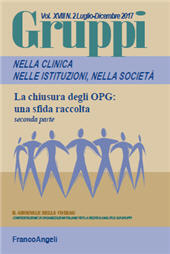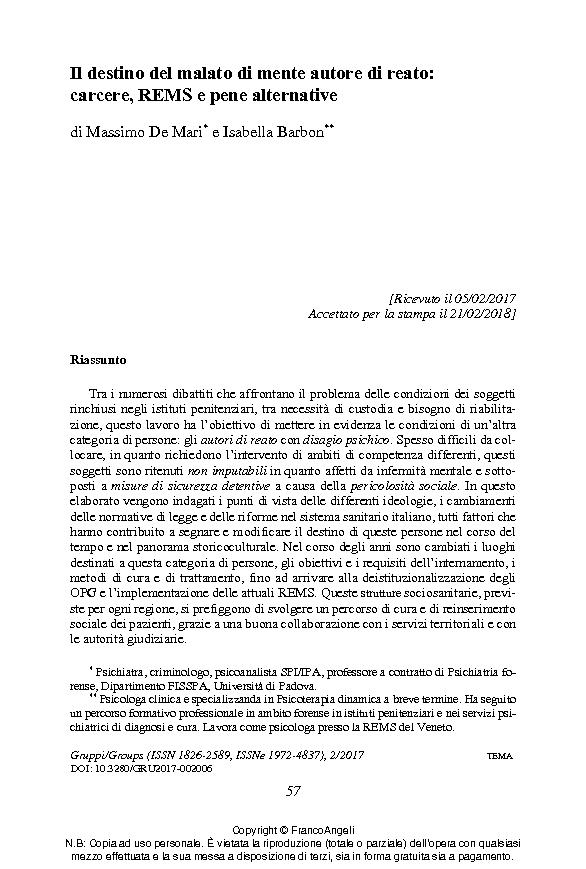Il destino del malato di mente autore di reato : carcere, REMS e pene alternative
57-77 p.
Tra i numerosi dibattiti che affrontano il problema delle condizioni dei soggetti rinchiusi negli istituti penitenziari, tra necessità di custodia e bisogno di riabilitazione, questo lavoro ha l'obiettivo di mettere in evidenza le condizioni di un'altra categoria di persone: gli autori di reato con disagio psichico. Spesso difficili da collocare, in quanto richiedono l'intervento di ambiti di competenza differenti, questi soggetti sono ritenuti non imputabili in quanto affetti da infermità mentale e sottoposti a misure di sicurezza detentive a causa della pericolosità sociale. In questo elaborato vengono indagati i punti di vista delle differenti ideologie, i cambiamenti delle normative di legge e delle riforme nel sistema sanitario italiano, tutti fattori che hanno contribuito a segnare e modificare il destino di queste persone nel corso del tempo e nel panorama storico-culturale.
Nel corso degli anni sono cambiati i luoghi destinati a questa categoria di persone, gli obiettivi e i requisiti dell'internamento, i metodi di cura e di trattamento, fino ad arrivare alla deistituzionalizzazione degli OPG e l'implementazione delle attuali REMS. Queste strutture sociosanitarie, previste per ogni regione, si prefiggono di svolgere un percorso di cura e di reinserimento sociale dei pazienti, grazie a una buona collaborazione con i servizi territoriali e con le autorità giudiziarie. [Testo dell'editore].
Among the many debates on the issue of how incarcerated individuals are dealt with inside penitentiary institutions, between need for custody and need of rehabilitation, this article highlights the state of the art of a specific category of people: offenders with psychic distress. Often difficult to place, as they require intervention within different areas of expertise, these individuals are deemed not to be imputable because they suffer from mental illness. They are therefore subjected to detention security measures because of social danger. This paper elaborates on the standpoints of all different ideologies, on the changes in legislation and on the recent reforms in the Italian health-care system; all these factors, over time, have marked and changed the fate of these people on a historical and cultural level.
Over the years there have been changes in the places destined to this category of people, in the objectives and the requirements of confinement, in the methods of treatment, which led to the deinstitutionalization of OPG structures and the implementation of the current REMS structures. These health-care structures, one for each Italian region, aim at conducting a treatment and social reintegration program for all patients, thanks to an efficient collaboration with other health-care services of the area and with the judicial authorities. [Publishers' text].
-
Articoli dello stesso fascicolo (disponibili singolarmente)
-
Informazioni
Codice DOI: 10.3280/GRU2017-002006
ISSN: 1972-4837
MATERIE
PAROLE CHIAVE
- Carcere, REMS, Perizia psichiatrica, Reato, Psicoterapia forense, Malato di mente criminale
- Prison, Rehab institution, Psychiatric expertise, Crime, Forensic psychotherapy, Mentally ill criminal



